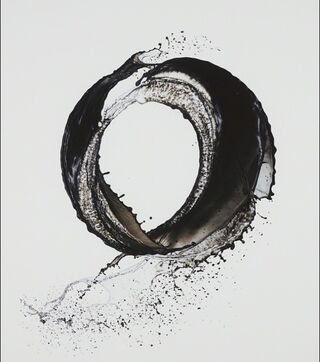Spirituality
The Emotional Impact of Losing an Invisible Body Part
Personal perspective: Requiem for my prostate.
Posted August 16, 2021 Reviewed by Devon Frye
Key points
- It's important to take the time to acknowledge body changes—even those nobody can see.
- Perceived pressure to tell well-wishers "I am fine" can distract us from the necessary grieving.
- With care, internal and intangible losses can be visualised to aid the mourning process.
I am reflecting on the deeper meaning of my invisible body changes after prostatectomy. I am healed on the outside. I can do everything I used to do out in the world. But something has changed deep inside.
A requiem is a musical act or token of remembrance. Here is a soundtrack to this post's remembrance:
"I ache in the places where I used to play." —Leonard Cohen, 1988
Five months after my prostate was removed, the external healing is remarkable. Scars are minimal. My wonderful pelvic floor specialist physical therapist is helping with deep fascia massage to release the various adhesions underneath the surface. I can run 5 kilometres in 29 minutes.
I look the same externally. The real changes are quite subtle, and often hard to name.
My Body Has Changed Since Prostatectomy
There's a profound emptiness where my prostate used to be. It was located so deep within my pelvis that I really didn't quite know where it was.

But it quietly controlled my bladder literally without me giving it a thought. My prostate added hugely to all kinds of sexual pleasure and it produced almost all the fluid I used to ejaculate.
And according to some spiritual traditions, it was at the base of the delicate and powerful chain of energy centres, known as chakras, that lead all the way from my sitplace to the crown of my head.
The accompanying image, reproduced with the artist's permission, captures the confusion of both emptiness and possibility I feel. From a Zen perspective, this can be captured by the word enso, which "can symbolize emptiness or fullness, presence or absence."
Taking Time to Recognise the Changes
What has personally helped me get in touch with the loss was a memorial-like ritual facilitated by my somatic coach Vanissar. This helped me really connect with the loss of my prostate—a body part I hardly knew, until it was gone.
I am grateful for this opportunity to mourn. It really felt like a memorial for this lost and often overlooked little gland.
She held me emotionally and spiritually while I just paid attention to my prostate, remembered it, celebrated its life, and grieved for its death—just like a funeral.
Losing Your Prostate Is Like Being on the Dancefloor When the Music Stops
The metaphor that emerged was that of the DJ at a party: you don't pay a lot of attention to the DJ so long as the music plays.

But if the music stops, the whole dancefloor grinds to a halt, and we all turn to look for the DJ.
This has happened with my prostate. It definitely played a role like that DJ in my sex life. And at a spiritual level, my prostate was located right at my base chakra. The core of all yoga—consciousness of energy flows in the body—feels radically shaken up for me.
My prostate, like the DJ in the analogy, made the party of life that much more enjoyable. At this moment I am rather like those dancers: frozen in time as the music stopped.
I am sure I can learn to dance without the DJ. It is a practice of dancing to the music within. But I sure miss my prostate.
Social Pressure: "Are You Fine Now?"
People around me prefer to get past the loss and the changes. The most common question I get is not "How are you?" but "Are you all fine now? Are you over it?"
I love their positive intent that I should be over it. But the impact is often that I minimise the actual loss.
It is time to recognise deep body changes after prostatectomy. I have a new body. I am slowly getting to know it. My wife is getting to know it. It's partly the same as before, and it is deeply different.
Am I all fine now? Yes. And no.
I'm getting there.
This post also appears on recoveringman.net along with more of my personal and medical backstory.


